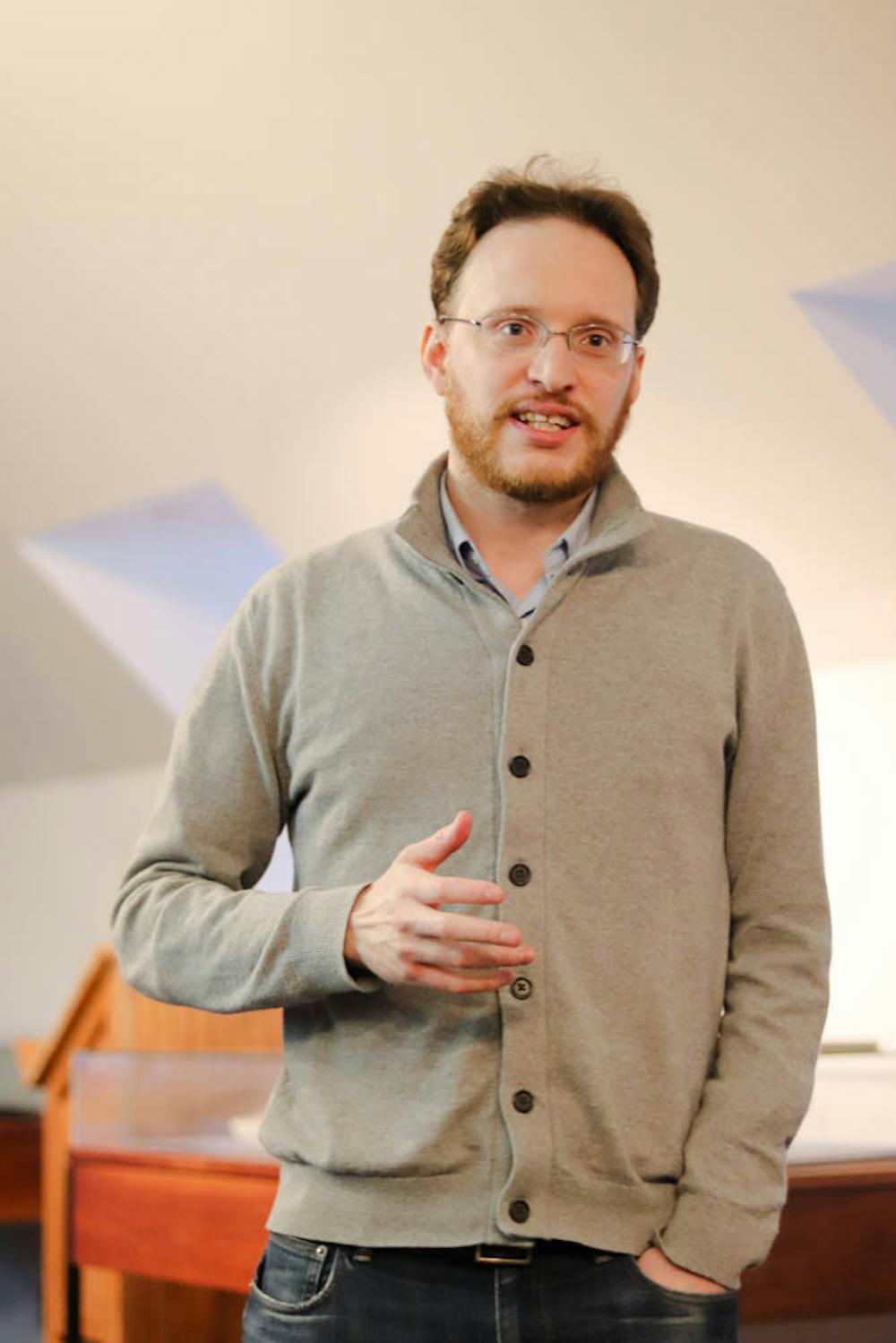In his lecture last Friday, Assistant Professor of Music Eric Nathan said, “Emily Dickinson’s poems are perfect on their own, they don’t need music to become better … But I think music, in the context of a long story, can help us see and reflect more deeply and emotionally on what is being said.”
This sentiment might be taken as the guiding principle behind “Some Favored Nook,” a chamber opera composed by Nathan with dramaturgical input from librettist Mark Campbell and performed Sunday at the First Unitarian Church of Providence. The libretto — the text of the opera — included Emily Dickinson’s poetry, along with content from the correspondence of Dickinson and her longtime informal editor, the abolitionist Thomas Wentworth Higginson. Higginson served as a friend, mentor and ultimately the force that pushed Dickinson’s poems to publication after her death; his diary and written work are also featured in the operatic text.
The performance consisted of only three voices — those of pianist Molly Morkoski, soprano Tony Arnold voicing Dickinson and baritone Andrew Garland voicing Higginson.
In a setting appropriate to Higginson’s career as a Unitarian minister, the chamber opera’s New England debut took place under the roof of a church. Presented by Providence-based arts organization FirstWorks, the performance was modest but striking, starting with a prelude of short pieces by 20th-century composers Amy Beach, Samuel Barber and Charles Ives. After this lead-in, the trio performed the chamber opera itself and joined Nathan in taking questions afterward.
Kathleen Pletcher, executive artistic director and founder of FirstWorks, said that the unusual nature of the production was part of what made it appealing. “Our audiences are people who are really inquisitive and like to make discoveries. … I think that’s what Eric is doing,” she said. “‘Some Favored Nook’ taps into a lot of different, really intriguing things,” she added, referencing how the piece pulls inspiration from both literary and musical traditions and wraps it all into a work of live performance.
Consuelo Sherba, a violist and teaching assistant at Brown, moderated the question-and-answer session after the performance. Sherba said that even within Nathan’s score, “There’s so much that’s poetic,” and that his stylistic annotations themselves elicit Dickinson; Nathan uses words like “luminous” and “birdlike” to indicate how particular parts ought to be sung or played.
Nathan’s vision for the tone and style of the piece stemmed from his knowledge of and research on Dickinson’s life. He recounted his surprise at the brightness of her room during a visit to her house in Amherst, M.A. and described how he wanted to bring that light to the music. He also found inspiration in Higginson’s writing about Dickinson’s poetry in an 1891 issue of The Atlantic Monthly, in which Higginson compared the poet’s handwriting to “fossil bird-tracks.” All of this, along with Dickinson’s reputation for having a shy, hermitic lifestyle, influenced Nathan’s artistic process.
During his lecture, Nathan identified these themes of “the sense of her handwriting, and the luminousness of her room and also the fragility, shyness,” which he found through his research and tried to capture in his composition. He also played audio from the piece in order to demonstrate his use of the motifs he built to suggest certain recurring themes in Dickinson’s life and poetic process.
Nathan was also inspired by the work of Aaron Copland, an American composer who had similarly set Dickinson’s verse to music in the 20th century. Nathan noted that he wrote some of the piece during a residency at Copland’s former home, including homages to the composer interspersed throughout the chamber opera.
“There are all sorts of iconic American composers that are called up or conjured up in the music,” pianist Molly Morkoski said in response to a question after the performance. She noted that the piece clearly references Copland and other composers without coming off as cliché or as pure imitation. “It’s a lovely, very genteel tip of the hat,” she added.





